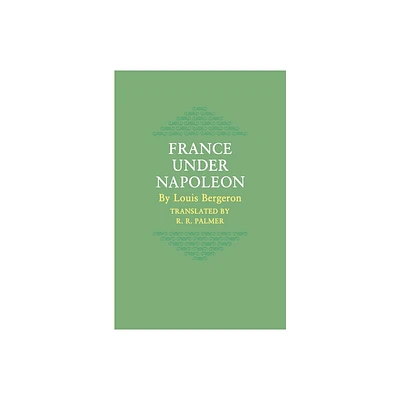Home
The Development of the French Monarchy Under Louis VI. le Gros, 1108 - 1137
Loading Inventory...
Barnes and Noble
The Development of the French Monarchy Under Louis VI. le Gros, 1108 - 1137
Current price: $8.99


Barnes and Noble
The Development of the French Monarchy Under Louis VI. le Gros, 1108 - 1137
Current price: $8.99
Loading Inventory...
Size: OS
*Product Information may vary - to confirm product availability, pricing, and additional information please contact Barnes and Noble
From the INTRODUCTION.
"M. Thierry remarks very truly that every people has two histories - the one interior, national and domestic, the other exterior. The former he goes on to describe as the history of its laws and institutions, and its political changes - in one word, of its action upon itself; the latter he refers to the action of the people upon others, and the part it may claim in influencing the common destinies of the world. Of these two histories the first cannot, of course, be fully written till the people has reached the term of its political individuality, neither can the second be written till the farthest effect of its influence can be traced and estimated."
These words are profound political philosophy. The first category eminently characterizes the history of mediaeval France, at least until the reign of Philip Augustus, when France was nearing the term of her political individuality and was beginning to appear upon the wide arena of European politics. In order properly to understand the growth of a state we must consider it in its origin and termination. Between these limits all is formative, institutional. The Middle Ages were essentially an institutional period, when forms and customs were in the making. They were the gigantic crucible into which all the greatness and grandeur of the ancient civilized world was plunged; they were the crucible out of which the states and nations and institutions of modern Europe emerged. Among these institutions there was one which was all-prevalent: feudalism, in ever-varying form, was the institution of the Middle Ages.
"M. Thierry remarks very truly that every people has two histories - the one interior, national and domestic, the other exterior. The former he goes on to describe as the history of its laws and institutions, and its political changes - in one word, of its action upon itself; the latter he refers to the action of the people upon others, and the part it may claim in influencing the common destinies of the world. Of these two histories the first cannot, of course, be fully written till the people has reached the term of its political individuality, neither can the second be written till the farthest effect of its influence can be traced and estimated."
These words are profound political philosophy. The first category eminently characterizes the history of mediaeval France, at least until the reign of Philip Augustus, when France was nearing the term of her political individuality and was beginning to appear upon the wide arena of European politics. In order properly to understand the growth of a state we must consider it in its origin and termination. Between these limits all is formative, institutional. The Middle Ages were essentially an institutional period, when forms and customs were in the making. They were the gigantic crucible into which all the greatness and grandeur of the ancient civilized world was plunged; they were the crucible out of which the states and nations and institutions of modern Europe emerged. Among these institutions there was one which was all-prevalent: feudalism, in ever-varying form, was the institution of the Middle Ages.
















